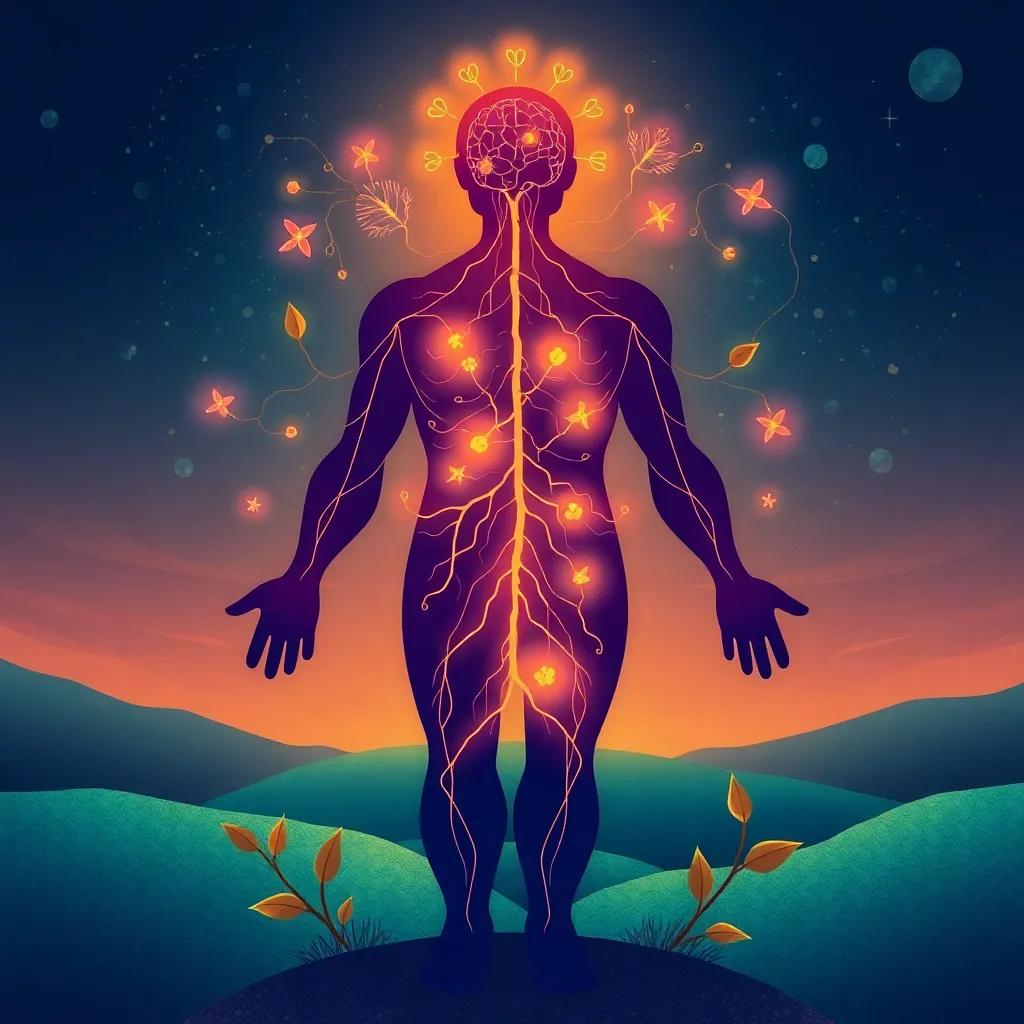Explore the endocannabinoid system’s role in regulating mood, pain, and immunity, and how lifestyle choices can optimize its function for better health.
The endocannabinoid system (ECS) is a vital regulator of bodily functions, influencing everything from mood to immunity. Discover how it works and its potential for holistic health.
Introduction to the Endocannabinoid System
The endocannabinoid system (ECS) is a complex cell-signaling system identified in the early 1990s by researchers exploring THC, a well-known cannabinoid in cannabis. The ECS plays a crucial role in maintaining homeostasis, regulating processes such as mood, appetite, pain, and immune function. According to Dr. Ethan Russo, a neurologist and cannabis researcher, The ECS is perhaps the most important physiologic system involved in establishing and maintaining human health.
Components of the ECS
The ECS consists of three main components: endocannabinoids, receptors, and enzymes. Endocannabinoids, such as anandamide and 2-AG, are molecules produced by the body that bind to cannabinoid receptors. These receptors, CB1 and CB2, are found throughout the body, with CB1 primarily in the brain and CB2 in the immune system. Enzymes like FAAH and MAGL break down endocannabinoids after they have carried out their function.
Interaction with Other Bodily Systems
The ECS interacts closely with the nervous and immune systems. For instance, it modulates neurotransmitter release in the brain, influencing mood and pain perception. A 2018 study published in Frontiers in Pharmacology highlighted the ECS’s role in neuroprotection and inflammation regulation, suggesting its potential in treating neurodegenerative diseases.
Role in Chronic Conditions
Research indicates that ECS dysfunction may contribute to conditions like chronic pain, anxiety, and inflammatory diseases. Dr. Julie Holland, a psychiatrist and author, notes, Targeting the ECS offers a novel approach to treating these conditions, with fewer side effects than traditional medications.
Clinical trials are exploring cannabinoids like CBD and CBG for their therapeutic potential.
Lifestyle and the ECS
Lifestyle factors such as diet, exercise, and stress management can influence ECS activity. Omega-3 fatty acids, found in fish and flaxseeds, are precursors to endocannabinoids. Regular exercise has been shown to increase anandamide levels, while chronic stress can deplete endocannabinoid production.
Beyond THC and CBD
While THC and CBD are the most studied cannabinoids, others like CBG and CBN are gaining attention. CBG, for example, has shown promise in preclinical studies for its anti-inflammatory and neuroprotective properties. A 2020 review in Molecules highlighted CBG’s potential in treating glaucoma and inflammatory bowel disease.
Conclusion
The endocannabinoid system is a cornerstone of holistic health, influencing a wide range of bodily functions. By understanding and supporting the ECS through lifestyle choices and emerging therapies, we can unlock new avenues for wellness and disease prevention.




